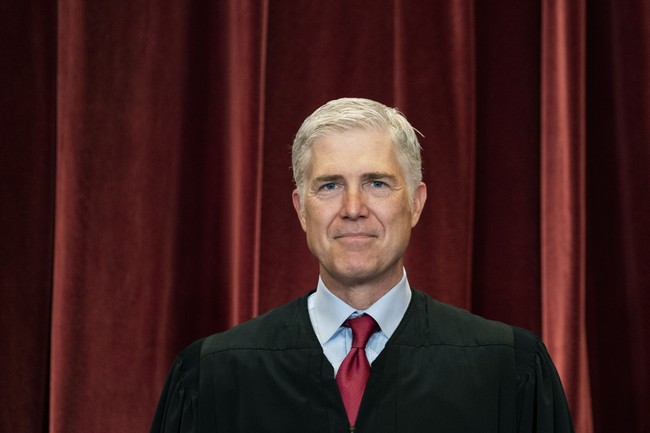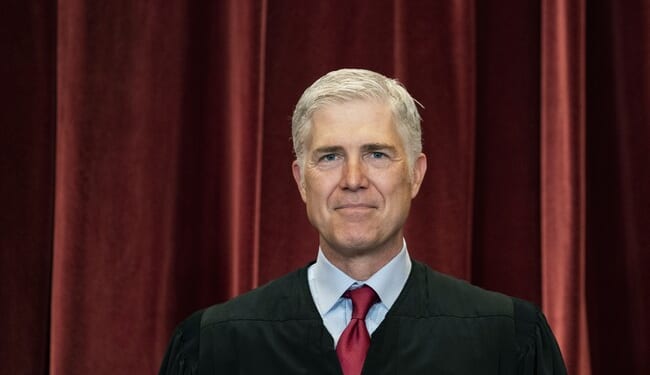
On Tuesday, oral arguments commenced in the case of Fischer vs. United States, scrutinizing the legitimacy of felony charges of obstructing an official proceeding against individuals involved in the January 6 United States Capitol riot. The court’s ruling will carry significant weight, as it could potentially influence the fate of hundreds of defendants from the January 6 riot and potentially undermine certain federal charges against Donald Trump.
Currently, the conservative wing of the court has expressed doubt regarding the government’s case, which U.S. Solicitor General Elizabeth Prelogar is making. Notably, Justice Neil Gorsuch posed a question that was epic, to put it mildly.
Specifically, he inquired whether Rep. Jamaal Bowman (D-N.Y.), who infamously pulled a fire alarm to delay a House vote, could face charges under the same statute.
“What does that mean for the breadth of this statute?” Gorsuch asked. “Would a sit-in that disrupts a trial or access to a federal courthouse qualify? Would a heckler at today’s audience qualify, or a heckler at the State of the Union address? Would pulling a fire alarm before a vote qualify for 20 years in federal prison?”
“There are multiple elements of the statute that may not be satisfied by those hypotheticals,” insisted Prelogar. “It relates to the point I was going to make to the chief justice about the breadth of the statute. These built-in limitations are things that I think would potentially suggest that many of those things wouldn’t be something the government can charge as 1512(c)(2).”
She added, “It would include the fact that the actus reus does require obstruction, which we understand to be meaningful interference. That means if you have some minor disruption or delay or some minimal outburst—”
“So my outburst requires the court to reconvene after the proceeding has been brought back into line, or the pulling of the fire alarm, the vote has to be rescheduled, or the protest outside of the courthouse makes it inaccessible for a period of time,” Gorsuch interjected. “Are those all federal felonies subject to 20 years in prison?”
Of course, you can see where this is going. It’s not surprising that the Biden administration’s position was that pulling a fire alarm to delay a House vote wouldn’t be prosecuted under the same statute because it chose not to prosecute Bowman.
Supreme Court Justice Gorsuch nukes Joe Biden’s DOJ over January 6th sentences:
Gorsuch lists multiple cases of folks who “obstructed a Congressional proceeding” without receiving a 20 year sentence.
1. Sit-ins at a trial (Kavanaugh protests)
2. Pulling a fire alarm (Rep.… pic.twitter.com/DWETkzi7JI— End Wokeness (@EndWokeness) April 16, 2024
I love the way that Gorsuch used Bowman as an example, yet the conservative wing of the court continued to own Prelogar. Picking up with Gorsuch left off, Justice Samuel Alito gave more examples that Prelogar argued would be difficult for the government to prove obstruction of an official proceeding, insisting that “the term ‘obstruct’ on its face denotes a meaningful interference with the proceeding,” to which, Alito pointed out that 1512 (c)(2) “doesn’t refer just to obstruct, it says ‘obstructs, influences, or impedes.’ Impedes is something less than obstructs.”
No matter what example justices offered, including pro-Palestinian protesters blocking traffic on the Golden Gate Bridge on Monday, or the hypothetical of protesters blocking traffic from Virginia to Washington, D.C., the Biden administration’s position that none of these would meet the same requirement.
Curious, isn’t it?
I wonder what it was like for Prelogar to stand there as Gorsuch and Alito destroyed her case right before her eyes.












